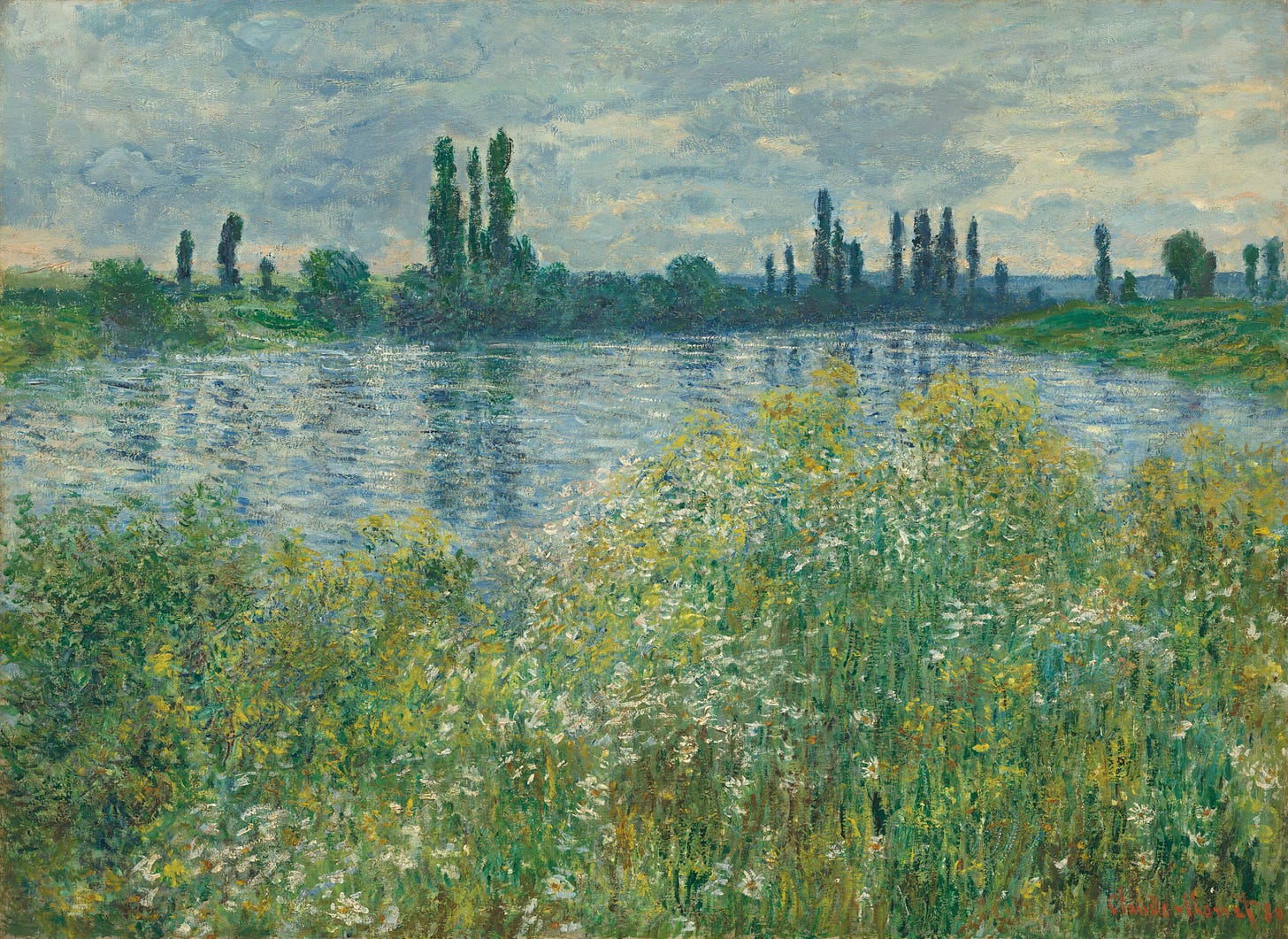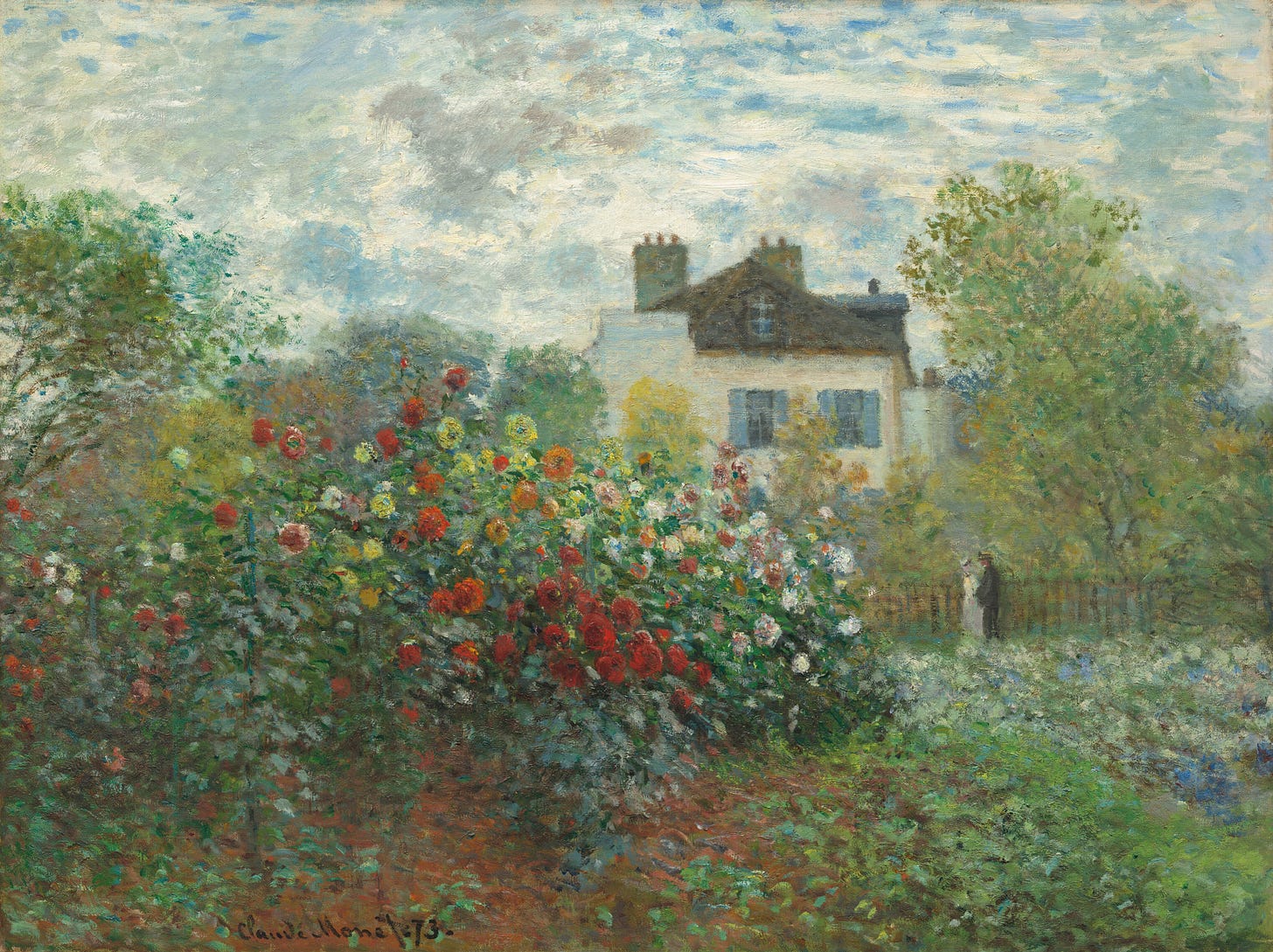Dear readers,
Welcome! A lot of you are new, thanks to some lovely Substack recommendations, and it’s an honor to have you in this space. This Substack is really a community. I do some of the facilitating, connecting, and writing, but you readers bring great wisdom, comments, and participation to this space. I am grateful for each and every one of you.
A quick note: I am excited to talk with Brooks Lamb and the Center for Modernity in Transition (COMIT) tomorrow on Zoom. We’ll be talking about rural communities in the U.S., and what can be learned from those communities. Brooks and I published a Q&A here at Granola—titled “How To Love Your Place”—at the beginning of March. I’d encourage you to read it, as it gives a helpful overview of his work and book, Love For the Land.
Our conversation will take places from 12:45 to 2:30 PM (EST) tomorrow. I hope you will be able to make it!
For those who are new to this space, I thought I’d write a short introduction to my writing work.
I was raised in a tiny Idaho farm town of about 3,000 residents. My forebears moved to Idaho in the late 1800s, and have been farming there ever since. (The family farm was sold in 2010.) Because of those longstanding community ties, my siblings and I grew up in a place where most folks recognized our last name.
In contrast, I was a bookworm who loved reading novels, playing piano, and daydreaming about faraway places. I never felt as if I “belonged” to Idaho (or as if Idaho belonged to me). And so I left Idaho for college outside Washington, D.C. I was eager to explore the world, make a difference, and do something meaningful. (As an 18-year-old, the latter two things didn’t seem particularly possible in rural Idaho, for some reason.)
College and—eventually—a writing career on the east coast taught me a lot. It grew my imagination and empathy, as well as my understanding of the world’s complexity, diversity, and beauty. But perhaps one of that journey’s most useful lessons was an education in homesickness.
Almost as soon as I left Idaho behind, I missed the scent of the cottonwood trees in spring and the ponderosa pines in summer. I missed my grandma’s peach pie and my momma’s pickled green beans. I missed sitting at the family piano and playing hymns. I missed listening to my Grandpa Wally sing.
Over time, I realized that Idaho was not just a particular geography, characterized by dry foothills, sweet sagebrush, and blue wildflowers. It was a web of people, animals, insects, plants, memories, values, and beliefs. It was a space in which past and present, ecology and culture, virtue and vice all coalesced.
I was introduced to the writing of Wendell Berry in college, but those years of homesickness in Washington, D.C. really taught me to appreciate his work. The pull of my homeland led me to write about agriculture and farmers, rural America and rural communities, even though I was thousands of miles away from the people I was most often writing about. Eventually, it led me to write about my family.
My ancestors were poor and struggling to make ends meet when they moved to Idaho. Their letters reveal ongoing hardship and difficulty as they toiled through the Great Depression. My great-grandpa (“Grandpa Dad,” as he was known) eked out a living with his bride Iva in the 1930s, trained and supported farmers after World War II, and served on multiple local town boards through the remained of his life. As I researched his life, I realized that Grandpa Dad’s hard work, neighborliness, and joy resulted in my own family’s strong social capital. The idea that he had planted seeds that resulted in a good harvest in my own life continued to haunt me, in a sense. It made me wonder what I owed to the past, and to place. This idea became the primary subject of a book I wrote from 2018 to 2021, titled Uprooted: Recovering the Legacy of the Places We’ve Left Behind.
In the years between college and writing that book, I had three babies. I got a Novak Journalism Fellowship. I moved from writing full-time in Washington, D.C. to working as a freelancer in the Virginia countryside. In between nursing babies and changing diapers, I wrote some articles for the New York Times, Wall Street Journal, Washington Post, and others.
In 2020, my husband encouraged me to apply to Oxford University. Going to Oxford had long been a dream of mine, but that dream did not work well with his military career when we first married. Funnily enough, I was pregnant with our third child when he proposed the idea. I thought he was crazy. But I was accepted (I wrote my application essay five days postpartum, which is another crazy story), and that year in Oxford became one of the sweetest our family has experienced. I’ve written a bit about that year here:
“Our Year Without a Car (With Kids)”
After our year in Oxford, we decided to move back to Idaho. We had travelled far, learned much, and grown deeply as a result of our communities in Virginia and the UK. But at the end of our year abroad, we felt the tug to move “back again.” And so we did.
And friends, when I walked along the Boise River that first spring back in Idaho, my eyes filled with tears. Because I could finally smell the sweetness of the cottonwoods once more.
In case you’re interested in reading more — some of my old articles are below:
New York Times:
“My Great-Grandpa Knew How to Fix the U.S. Food System”
“The Farm Bill Ignores the Real Troubles of U.S. Agriculture”
“Wendell Berry’s Right Kind of Farming”
“Can Localism Restore Sanity to U.S. Politics?”
Wall Street Journal :
“Small Town Natives are Moving Back Home”
Plough Magazine:
“Wendell Berry’s Long Obedience”
books
Nathan Coulter, by Wendell Berry
Nathan Coulter is easily one of my favorite Berry books. It is also the first book he ever wrote: the project he composed from 1958-1960, during his Wallace Stegner Fellowship at Stanford University’s Creative Writing Program. I was just reading the National Endowment for the Arts interview with Wendell and Tanya Berry, in which they talk about how big of an influence Stegner was on both of their lives. Tanya says, “He was a great friend to us. He really was a great influence and a great helper.” I am curious how much of Stegner’s influence, style, and tone come out in this book.
a recipe for you
I’ve spent quite a bit of time experimenting in the kitchen recently, and have a few different recipes to share this summer. This first one is an easy one. I love oatmeal chocolate chip cookies, but often feel as if the chocolate overpowers the soft, nutty flavor of the oats. These cookies skip the chocolate chips in order to showcase the flavors of lemon and nutmeg. If you try them, let me know what you think.
1 cup butter (you could try substituting coconut oil—they’ll likely spread more)
1 1/2 cup brown sugar
1 tsp vanilla
2 eggs
zest of one lemon
Cream the butter and brown sugar until fluffy, then add the eggs and vanilla one at a time. Mix until well incorporated, then gently stir in the lemon zest.
2 cups oats
1 1/2 cups flour (you can use all-purpose or gluten-free)
1 tsp baking powder
1 tsp baking soda
1 tsp cinnamon
1/2 tsp freshly grated nutmeg (if you use freshly grated nutmeg, a little goes a long way. If you use older nutmeg, you might want to add a bit more.)
Mix all the dry ingredients thoroughly in a separate bowl. Once fully incorporated, slowly mix the dry ingredients into the wet ingredients. Refrigerate for 30-45 minutes.
Scoop onto a prepared cookie sheet, giving about 1 1/2 inches between the cookies. Bake at 375 degrees Fahrenheit for 12-13 minutes.



I just read this essay in the NYT this morning, and it reminded me of your experience, albeit with a somewhat different suburban edge. This is the first time I’ve heard of this author, but I was imagining how the differences and similarities in your experiences might make for a fascinating podcast discussion between the two of you about the rural West, place, home…
https://www.nytimes.com/2024/06/09/opinion/unabomber-novel-american-west.html?unlocked_article_code=1.yk0.oiKm.EEmwIcfTfgnO&smid=url-share
We made the cookies today! They were delicious!! Although my daughter thought they should still have chocolate chips - plus the lemon zest and nutmeg :) we can give it a try :) They came a little flat out of the oven - are they supposed to be? Or should they be more puffy? Thank you for sharing!